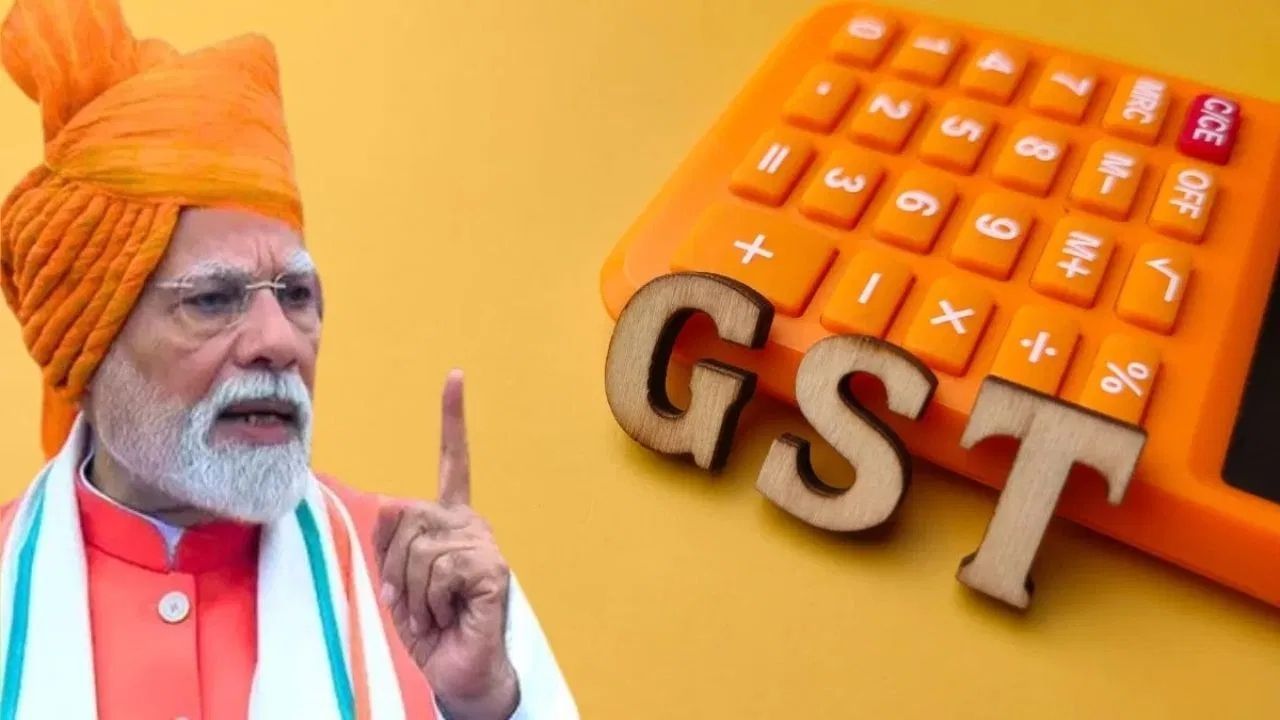Finance Minister Nirmala Sitharaman has recently announced major reforms in the GST system in a press conference. This change is part of the announcement made by Prime Minister Narendra Modi from the ramparts of the Red Fort. Now only 2 tax slabs will be held on almost all everyday items across the country, which will make the tax system even more simple and transparent.
5% tax on everyday goods
According to this new change, everyday use items like soap, shampoo, toothpaste, tea, sugar, spices and cheap clothes will come in 5% tax slab. This will give relief to the common consumers in the prices of these items. At the same time, consumer durables like fridge, TV, washing machines and up to 1200 cc cars will now be kept in 18% tax slab, whereas earlier they used to come in 28% slab. This means that the prices of these expensive home appliances and vehicles will also decrease.
GST will not be on some items
The government has decided to remove GST on roti, paratha, dairy products and private insurance, so that there will be no tax on these essential goods. At the same time, 40% tax will be levied on Sin Goods like tobacco, gutkha, cigarettes and alcohol, which will help in controlling the consumption of these items as well as increase government revenue.
Government’s income will affect
Due to this change, the government may suffer revenue loss ranging from about ₹ 1.1 lakh crore to ₹ 1.8 lakh crore every year. The Center has recently received a dividend of ₹ 2.69 lakh crore from RBI, which can provide some relief. But the situation is difficult for states because after the implementation of GST, states got a guarantee of 14% annual revenue increase for five years, which is now over. Therefore, many states are demanding new financial security after this change. At the same time, the government will continue to compensate only by March 2026 to compensate the compensation cess.
This is the journey of GST
Eight years have been completed to the Goods and Services Tax (GST). GST was implemented in the country on 1 July 2017 after a long preparation of about 17 years. Earlier, about 17 different local taxes and 13 cess were applicable in the country, including a single tax system was created. With the introduction of GST, the tax system not only became simple but its impact has been positive on both the common man and the business.
After the implementation of GST, there has been a tremendous increase in tax collection. The total GST collection of the country in the financial year 2020-21 was Rs 11.37 lakh crore, which has increased to Rs 22.08 lakh crore in the financial year 2024-25. That is, the GST collection has almost doubled in just five years.
If we look at the contribution of GST in the budget, then it is about 44%. The total budget of FY 2025-26 comes from GST about half of the total budget of Rs 50.65 lakh crore. This suggests that the GST has become the backbone of the treasury of the government. As of April 2025, more than 1.51 crore active GST registrations are registered in the country. This number is continuously increasing, which shows that GST’s grip between traders and industries is getting stronger. Along with this, the tax collection is also increasing continuously.
Before the arrival of GST, excise, service tax, VAT, entry tax, and luxury tax were different, causing many problems to consumers. With the arrival of GST, this system became more transparent and simple. However, products like petroleum and alcohol are still outside the scope of GST.
What will be the effect on the common man’s pocket?
Now the GST Council has approved the new reform, then there will be great relief in domestic expenses. Everyday products like soap, shampoo, toothpaste will come down from 18% to 5% tax slab. Luggage like tea, spices, sugar, cheap clothes will also be on 5% tax. Due to reduced tax on expensive home appliances like washing machines, fridge, air conditioner etc., their prices will also be reduced. However, its full benefit will be available only when the companies will directly provide the benefits of tax cuts to the customers.
System will be easier with technical reforms
The beginning of GST had many technical troubles and complications in returns filing. But now the system has improved. Tax compliance has become easier through e-invoicing and data analytics. Nevertheless, small businesses and exporters can face cash crisis during changes. Also, the demand to include petroleum in GST is still incomplete.
